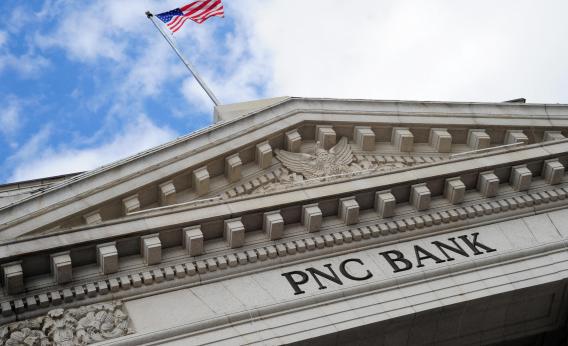Watching Ben Bernanke testify before the House Financial Services Committee it’s clear that lots of House members are eager to make sure that tighter regulation of the financial sector doesn’t lead to tighter regulation of community banks. This makes some sense, since the failure of any given small bank isn’t that big a deal.
But there’s a potentially dangerous slippery slope here that Representative Steve Stivers (R-Ohio) rapidly illustrated when it came to be his turn to ask a question, where he opined that firms such as PNC Bank and US Bancorp should be considered a kind of community bank. Those banks happen to operate in Ohio, but you could also put institutions such as HSBC, Capital One, TD Bank, and Suntrust in this mid-major category. Banks like this really are substantially smaller than a Wells Fargo or a Goldman Sachs. But on another level, this is nuts. These are giant banks, and I promise you that if PNC went bust it’d be a really big deal. Normally when a bank fails, the FDIC likes to arrange for it to be taken over by some other bank. But these mid-majors are large enough that they’d be hard for most firms to swallow. And would you really want one of them to be folded into one of the existing giant banks? At the same time, simply closing a bank of that scale would be both fiscally and economically costly.
Long story short, you need to regulate these banks just as much as you need to regulate the true giants. Since they tend not to be in as many different lines of business as the biggest banks, it’s perhaps simpler to regulate them. But you’ve got to watch the leverage here just as much as anyplace else.
The Danger of Coddling Community Banks

A PNC bank building is seen on February 19, 2009 in Washington, DC.
Photo by KAREN BLEIER/AFP/Getty Images
Advertisement